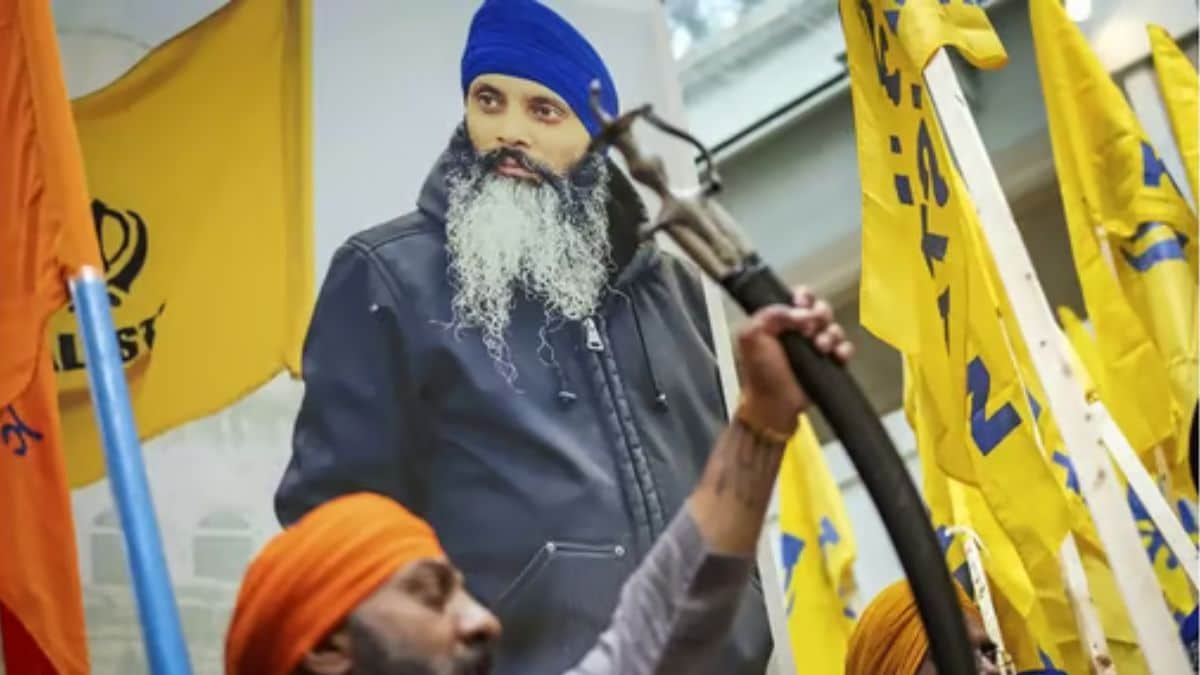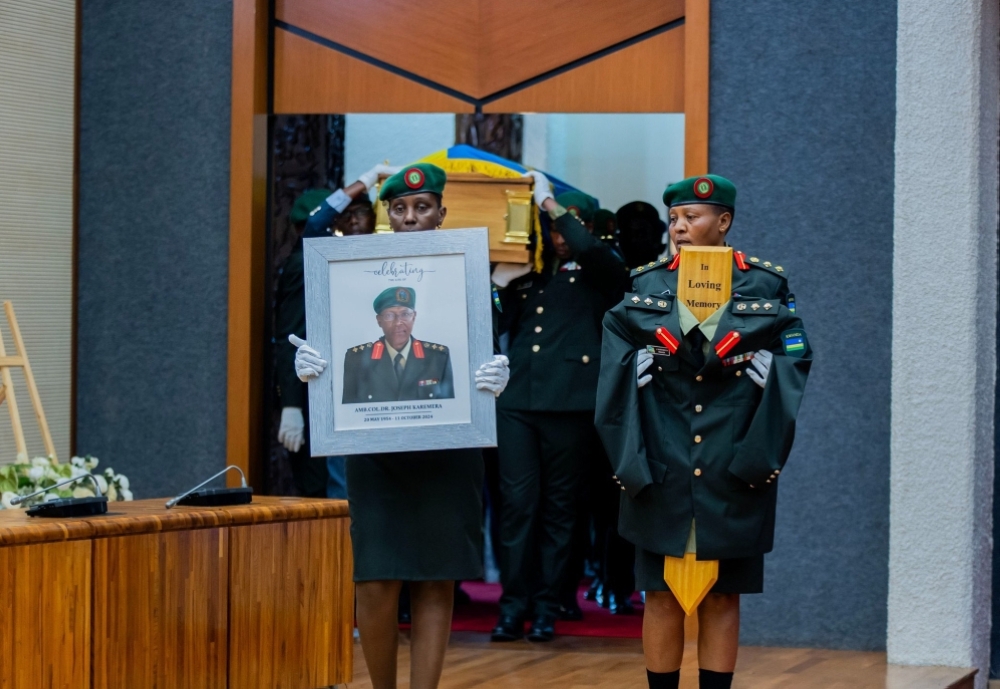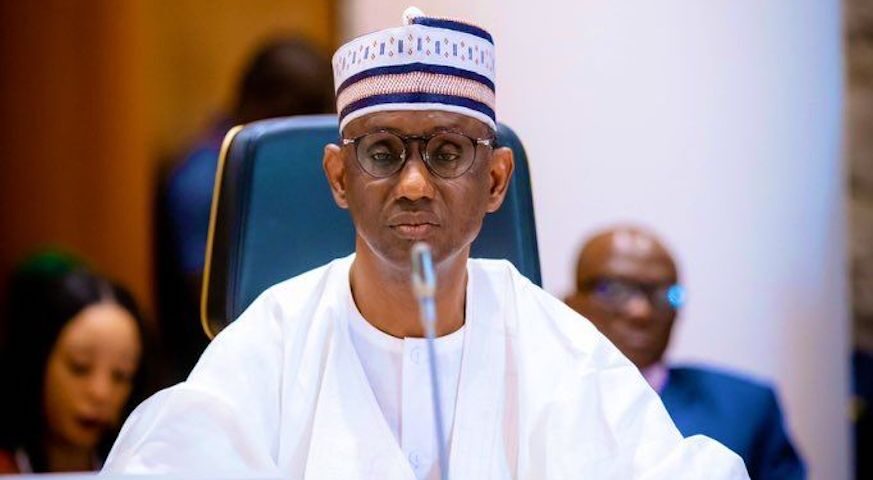
Justin Trudeau has waged a war on India. He has broken all protocols and even the boundaries of rational behaviour in bringing grave accusations against a fellow democracy without even a morsel of evidence. He has accused senior Indian career diplomats of being criminal masterminds and sought to interrogate them.
And he is fast burning all bridges, setting in motion developments that may outlast his tenure. Trudeau’s deeply unpopular government is propped up by Khalistanis, an armed insurgency movement that seeks to split India through violent means on sectarian lines. His regime lies in bed with hoodlums, gangsters, narco-traffickers, extortion-racketeers and terrorists, and he has turned Canada into a hub of organized crime by mass importing gangland criminals from India on false asylum claims and forged documents.
Trudeau faces a wipeout in prime ministerial polls next year. Only 15% Canadians believe that he and his Liberal Party deserve to remain in power, according to latest surveys that put his Conservative rival Pierre Poilievre comfortably on top . Trudeau believes that a nasty diplomatic fracas against India could be his get-out-of-jail card.
It will distract the electorate, suck Poilievre into a ‘foreign interference’ controversy and force the hand of pro-Khalistani leader Jagmeet Singh into backing him. Trudeau understands that he has little credibility as a world leader, and Canada is a geopolitical lightweight, so he has spent the last few days goading ‘Five Eyes’ partners into ganging up against India. This high-octane diplomatic dispute, that has already led to the withdrawal and expulsion of six diplomats from each side, still has many more dimensions that need retelling, so here’s a ready reckoner: Where does the diplomatic spat stand right now? Appearing before a foreign interference inquiry commission Wednesday, the beleaguered Canadian prime minister made a stunning admission.
He said Canada had not provided India with any solid proof while alleging on the floor of the Parliament in September last year that Indian government was behind the murder of Khalistani terrorist Hardeep Singh Nijjar. Governments rarely accuse other sovereigns of carrying out assassinations on their soil unless they have irrefutable data that has evidentiary value in a court of law. Leave alone providing New Delhi with forensic, audio, video, any other hard evidence, or even specific information on the alleged link between Nijjar and “agents of Indian government”, Trudeau relied on what he claimed to be “credible allegations”, and even one year into the so-called probe, not a “shred of evidence” so far has been shared with New Delhi, as the India’s ministry of external affairs (MEA) has recently clarified.
Trudeau’s comments prove that he had acted on a hunch. That’s a desperate punt by a sinking gambler, not the action of a head of state. He told the Hogue Commission that in response to India’s insistence on evidence behind the allegations levelled by Canada on Nijjar, his government provided just intelligence, “not hard evidentiary proof.
” Last September, Trudeau had claimed that Canada has “credible reasons to believe that agents of the government of India were involved in the killing of a Canadian on Canadian soil,” but evaded an answer when asked how “extensive and solid the evidence was.” It is remarkable that while his government has failed to provide any evidence of India’s complicity, Trudeau is seeking to implicate India in a case of extrajudicial killing based on ‘intelligence’ alone. Trudeau should know that intelligence is not evidence, neither is it the truth.
Intelligence can be manipulated, misread, overstated, misinterpreted, or maneuvered. His own law enforcement authority, the RCMP, last year had said that it was unable to run a criminal investigation into allegations of foreign interference in the 2021 elections “because intelligence reports don’t always translate into evidence.” Canada’s deputy minister of foreign affairs David Morrison told lawmakers in a committee that “intelligence gathered by CSIS (Canadian intelligence agency) and other national security bodies rarely paints a full or concrete or actionable picture” because “Intelligence is not truth”, according to a report in state-funded CBC.
Trudeau’s position has always been untenable. He dismisses countless inputs provided by the Indian government on Punjabi gangsters that have made Canada their home, he rejects multiple dossiers on Nijjar, a designated terrorist wanted in India on charges of bombing, murder and sponsoring hitjobs, but the world is supposed to take his word on intelligence like a gospel. This reeks of white priviledge.
India’s position vindicated New Delhi wasted little time in stating that “what we have heard today only confirms what we have been saying consistently all along – Canada has presented us no evidence whatsoever in support of the serious allegations that it has chosen to level against India and Indian diplomats.” In a subsequent presser on Thursday, the MEA pointed out that Canada has rebuffed 26 extradition requests from India stretched over a decade and “we find it really strange that now people who we wanted to be deported or action to be taken, we are being told that, RCMP is blaming the Indian side for the crimes committed by these people in Canada.” Nijjar, the ‘plumber’ and ‘Sikh leader’ One of the terrorists on whom India shared intelligence with Canada, providing details of over a dozen cases of murder and other criminal activities in India, and against whom Interpol had issued a red corner notice in 2014 was Nijjar.
The designated terrorist and separatist leader, who was wanted under India’s Terrorist Act for involvement in multiple cases, including a 2007 movie theater bombing in Punjab that killed six people and injured 40 others, and the 2009 murder of Indian politician Rulda Singh became the issue on which Canada chose to downgrade ties with India. Nijjar had entered Canada on false passport, fudged his age data, sought and denied asylum multiple times, entered into a marriage of convenience with a woman who sponsored him for eventual citizenship, and was the brain behind the banned terrorist group Khalistan Tiger Force (KTF). Nijjar, who according to the Trudeau regime was a peaceful advocate for Sikh independence and a plumber who “cared deeply about his community”, had links with extortion racket and weapons-smuggling network, directed hit jobs against targets sitting in Canada, and gave incendiary speeches calling for violent action against Indian targets.
Among other crimes, India accused Nijjar of “operationalising, networking, training and financing” KTF members and “running terrorist training camps in British Columbia for supporters ready to carry out attacks in India.” It is disconcerting to note that while Canada had put him briefly on a ‘no-fly list’ and had frozen his bank accounts, he was still lionized by the Trudeau regime, and never subjected to a formal charge. The Canadian Parliament even observed a moment of silence to mark the first anniversary of his death.
The Pannun-Trudeau connection This isn’t surprising, given the fact that a direct link has emerged between Trudeau and Gurpatwant Singh Pannun, the founder of the banned Sikhs for Justice and a designated terrorist who has made it his habit to issue death threats against Indian diplomats and political leaders, including prime minister Narendra Modi. Pannun has been booked by India’s NIA under the stringent UAPA law for threatening passengers flying Air India flights. Pannun, who has dual citizenship of the US and Canada, threatened to attack the Indian Parliament last December.
Platformed by the Canadian state broadcaster On Wednesday, Pannun admitted that he has been in regular touch with Trudeau’s office over the past several years, apparently detailing “alleged espionage networks run by India on Canadian soil.” A letter written by him and addressed to Trudeau in the past has also surfaced in which he is found blaming the murder of Nijjar on “Indian agents” and demanding the expulsion of Indian high commissioner Sanjay Verma “for Nijjar’s assassination, which in every sense is an act of state terrorism by India.” The implications of a Trudeau-Pannun link go beyond Khalistani vote bank politics.
For a head of state to be in regular communication with a terrorist organization that issues ‘kill lists’ against Indian diplomats and leaders, places a ‘bounty’ on their heads, puts up posters glorifying Talwinder Singh Parmar, the Khalistani terrorist who was behind the bombing of Air India flight ‘Kanishka’ in 1985 killing 329 passengers on board – reeks of foolishness and complicity. Journalists as ‘agents of foreign interference’? While Trudeau has been unable to stop Chinese and Pakistani interference in Canada’s domestic politics, his regime has listed Indian journalists doing routine journalistic work or posting on X (formerly Twitter), as “potential foreign information manipulation and interference.” Censoring, cancelling Indian voices as pro-government, “Modi-aligned” or even “Godi media” (a juvenile slang that exposes the utterly unserious and callous nature of the regime) severely dents Canada’s claims of being a “rule of law country”.
When journalists in India are labelled by Canada’s foreign ministry, no less, as “Modi-aligned” for pointing out that Nijjar was a terrorist, Pakistan is instigating Khalistani movement in Canada to counter India’s influence and that Canada has become a safe harbour for lawbreakers of every stripe, it indicates that the regime has become paranoid, out of ideas, and the leader at the helm has lost his marbles. The Pakistan angle in Khalistan ‘movement’ One of the little reported phenomena in this controversy has been the role played by Pakistan in keeping alive and providing tempo to the Khalistani separatist movement, that seeks a separate homeland for Sikhs by splitting India through violent means. It is worth noting, as journalist Francesca Marino points out, that Khalistanis only target India but never the old capital of the great kingdom of Punjab: Lahore.
It is evident that Pakistan’s intelligence agency has been fervently working behind the scenes to counter Indian influence in Canada and open up the extremist movement that has implications for India’s national security and territorial integrity. Khalistani unrest in Canda will have reciprocal turmoil in Punjab. Canadian Security Intelligence Service (CSIS) has confirmed Pakistan’s interference.
Senior officer of the Canadian spy agency, Vanessa Lloyd, told the inquiry commission that “engagement of Pakistan is consistently in balance with trying to reduce the influence of India...
The influence of Pakistan is directly related to the support of Khalistani extremism.” It is clear that the so-called Khalistani movement is an engineered one, boosted by Pakistan and egged on by the United States that chooses to look the other way to keep a rising power in check. Diplomats maligned for doing their job Interestingly, the Canadian government has been running a propaganda, led by its law enforcement agency RCMP, that Indian diplomats are not only guilty of spying, but also foreign interference in Canada’s domestic affairs and of running a spy network whereby they kept a tab on hostile Khalistani elements and passed on the information to gangster networks.
The RCMP statement released Monday claimed that “Indian diplomats and consular officials based in Canada leveraged their official positions to engage in clandestine activities, such as collecting information for the Government of India, either directly or through their proxies; and other individuals who acted voluntarily or through coercion. Evidence also shows that a wide variety of entities in Canada and abroad have been used by agents of the Government of India to collect information. Some of these individuals and businesses were coerced and threatened into working for the Government of India.
The information collected for the Government of India is then used to target members of the South Asian community.” Canadian media has also been pushing such a propaganda . This is a specious and self-serving argument.
Indian envoys, all career diplomats with impeccable credentials and distinguished record – a product of Indian Foreign Service under the Ministry of External Affairs for diplomatic, consular and commercial representation overseas, are among the most respected officials worldwide. Not just Indians, but diplomats anywhere in the world would be derelict in their duty if they do not collect information in the host nation where they are stationed, and keep a tab on hostile elements to serve and protect their country. As former foreign secretary of India Kanwal Sibal writes on X (formerly Twitter), “To treat the Indian mission keeping track of anti-Indian Sikh extremists as complicity in transnational repression is unspeakably absurd.
All missions keep track of elements hostile to the countries they represent for visa denials, countering their propaganda locally, building bridges where possible. Look at Canada’s utter hypocrisy. In visa applications by retired Indian armed forces/security personnel it seeks to know the places where they have served, which is confidential, and deny visas if they have served in Kashmir.
” The Canadian propaganda maligns Indian diplomats for doing their job. If anything, it is a self-projection since it is Canada whose envoys have reportedly been trying to “radicalize the Sikh community in Punjab by fueling the so-called farmers’ movement as well as orchestrating the human rights narrative with the radical Sikhs against the Modi government,” as Hindustan Times observes in a report. The Anglosphere cartel’s exclusive club It has been interesting to observe Trudeau running pillar to post to rally the Five Eyes partners, an exclusive white boys’ club of the US, Australia, New Zealand, Canada and the UK – who share intelligence, surveillance data and other confidential information as part of a multilateral alliance.
Evidently Trudeau wants to exploit the alliance network’s clout to dig himself out of the hole and has been pressing his partners to come out swinging against India. Nearly all the allies have obliged, including the US that sent a terse message to India that Canada’s allegations are “serious” and “we have wanted to see India take them seriously and cooperate with Canada’s investigation. They have chosen an alternate path.
” The UK chimes in, saying that it has “full confidence in Canada’s judicial system. Respect for sovereignty and the rule of law is essential”. This was Britain’s second statement.
The first one – of a restrained, pro-forma variety – ostensibly did not please the Trudeau regime. The Anglosphere club’s imperial attitude and supercilious exceptionalism was ironically evident when US president Joe Biden, at the Israeli execution of Hamas leader Yahya Sinwar, the mastermind of the October 7 attack on Israel, on Friday released a statement saying: “Today..
. proves once again that no terrorists anywhere in the world can escape justice, no matter how long it takes.” A criminal deemed as a terrorist by the Americans may find no place to hide, but how dare India, a third world poverty-stricken upstart that doesn’t have even a UN Security Council seat, unilaterally designate someone a “terrorist” and proceed to take him out? What measure of audacity that India even attempts to do so on the territory of an Anglosphere club member? On Friday itself, perhaps not so coincidentally, the US justice department charged Vikash Yadav, a former Indian intelligence officer, for allegedly directing a foiled plot to neutralize Pannun in New York last year.
Bankrolled by US heft, the Anglosphere preserves for itself the right to make the law, and countries such as India, the most populous in the world, the globe’s largest democracy and the fifth largest economy, are just rule takers with limited rights. The arrogation of power along racial divides is an iron clad, yet unwritten geopolitical law of white supremacy. Views expressed in the above piece are personal and solely those of the author.
They do not necessarily reflect Firstpost’s views..














